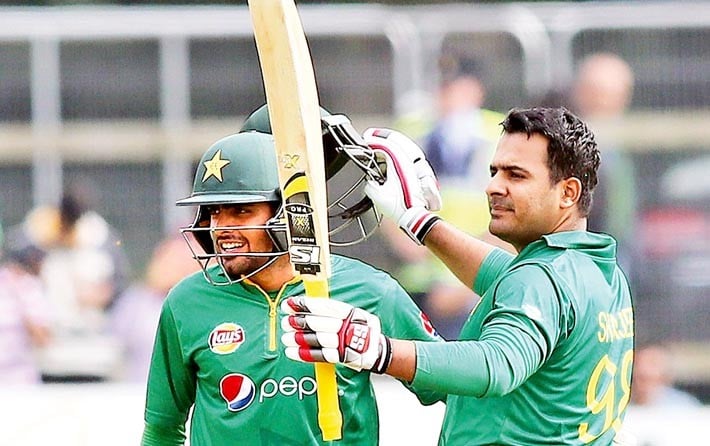
Sharjeel Khan has been banned for five years for his role in the PSL spot-fixing scandal. Several other players are also expected to be punished but are such steps enough to curb the scourge of corruption in our cricket?

tThe whole of Pakistan celebrated the rise of Sharjeel Khan as a big-hitting opener of international fame back in the summer of 2016. Hyderabad, in particular, was over the moon as the left-hander, who went on to become the first one from the city to play Test cricket for the country, became its favourite son.
But Sharjeel’s fall from grace didn’t take much time. Just when his star was rising, the 28-year-old was caught for a crime that’s unpardonable. He was caught for his alleged involvement in a spot-fixing scandal that rocked the second edition of the Pakistan Super League (PSL) held in the UAE earlier this year. He pleaded not guilty. But Pakistan Cricket Board (PCB) officials claimed that they had a water-tight case against him and several others including another opening batsman, Khalid Latif.
After months of deliberations, a three-man tribunal formed by the PCB to probe the PSL corruption scandal decided last Wednesday that Sharjeel was guilty. He was slapped with a five-year ban but Sharjeel could be back in action in two years time as half of the five-year sentence is suspended. The tribunal found Sharjeel guilty on all five counts but still opted to hand him minimum punishment for what is a grave offence. The maximum penalty would have been a life ban.
Personally, I believe that if Sharjeel did it then he shouldn’t have walked away with a 30-month ban. The player and his lawyers remain adamant that he wasn’t guilty. They are planning to appeal against the ban which means the corruption case will continue to pose a big headache to the PCB in the coming days.
Next week, it will be Khalid Latif’s turn to face the PCB tribunal. He, too, is likely to get similar punishment. A few other players are also expected to be punished but are such steps enough to curb the scourge of corruption in our cricket?
Back in 2010, the trio of Salman Butt, Mohammad Asif and Mohammad Amir were also banned and even jailed after being found guilty of spot-fixing in a Test in England. Though Amir managed to successfully return to international cricket, Butt and Asif remain in the wilderness. They were supposed to be living examples for other players. But it’s pretty clear that just by punishing the culprits you cannot put an end to corruption. It is too widespread in the world of cricket, especially in our parts of the world. Professional leagues like the PSL are perfect hunting grounds for fixing mafia. That’s why instead of celebrating the guilty verdict against Sharjeel, the cricket board should be looking to find ways and means to ensure that what happened at the start of PSL 2 earlier this year doesn’t happen again.
The Board touts PSL as a big success but personally I believe that the league will continue to cost us unless concrete measures are taken to shield it from the various fixing mafias that are active in the cricket world. Young players can become easy prey for such gangs that have easy access to the players. Despite all the tall claims made by the International Cricket Council (ICC) and its member boards like the PCB, it is evident that fixing remains a big threat for cricket and threatens to continue tarnishing the image of this great sport. The rise of the Twenty20 format and mushrooming of professional leagues all over the world has provided new opportunities to fixing syndicates that operate from places like Mumbai, Dubai, Lahore and Johannesburg.
Cricket authorities like ICC and PCB will have to go beyond just catching and punishing the cricketers who fall prey to temptation of making easy money. Unless they go beyond and stand up to the menace of match-fixing, they might just as well whistle in the wind.
Meanwhile, in the court of the PCB tribunal there remains a few more cases that need a decision. Sharjeel, who was once compared to David Warner, was one of six current or former Pakistani internationals implicated in the PSL corruption case. Mohammad Irfan and Mohammad Nawaz have already been punished. Latif’s verdict is expected soon after the Eid break. Proceedings in the case of Shahzaib Hasan will resume soon while Nasir Jamshed will be appearing before the tribunal on September 19. All of that will be happening at a time when Pakistan should have just focused on a big, positive development: the return of international cricket to the country in the form of a three-match T20 series against a World XI in Lahore later this month.